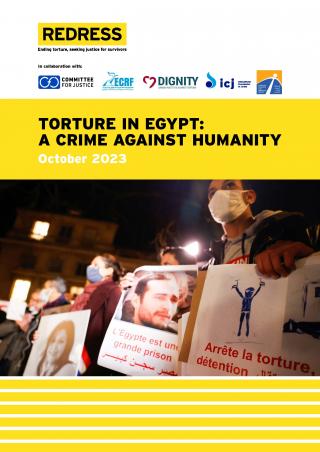The undersigned human rights organizations are deeply concerned over the continued disappearance of student Ahmed Hassan Mustafa, for more than 2000 days to date.
Files: Policing and human rights
The Egyptian Initiative for Personal Rights (EIPR) calls for the immediate release of worker Hisham al-Banna, who was excluded from the release order issued in favour of the Samanoud Weaving and Textile workers.
We, the undersigned organizations, are profoundly concerned by the recent and rapid deterioration of conditions inside Egypt’s Badr Rehabilitation and Correctional Center, according to testimonies from detainees’ families.
Measures Taken to Deport Sudanese Refugee Othman Hussein Yaqoub Mansour Explicitly Violate International Law and Egyptian Legislation
2 Oct 2023
Today, a coalition of international and Egyptian NGOs has submitted a detailed legal analysis to the UN Committee against Torture concluding that the Egyptian authorities’ use of torture is so widespread and systematic as to amount to a crime against humanity under customary international law.




